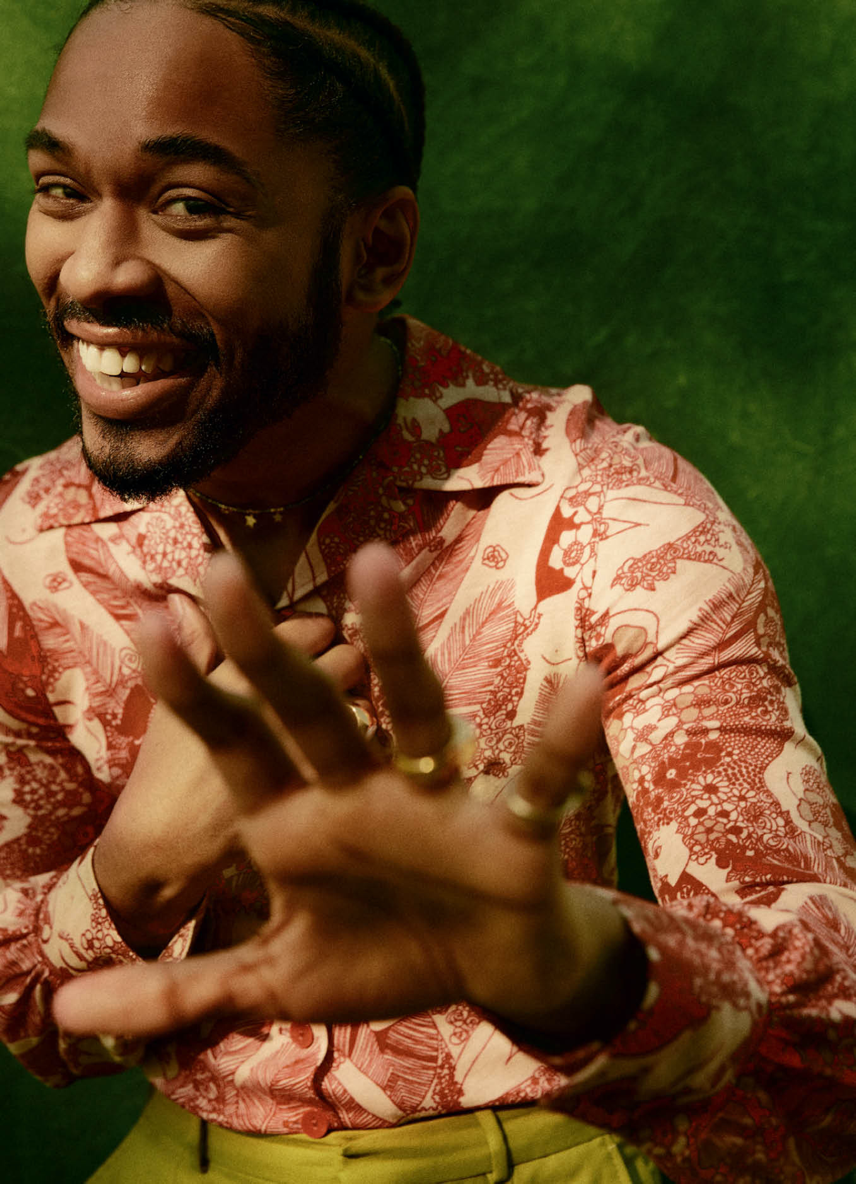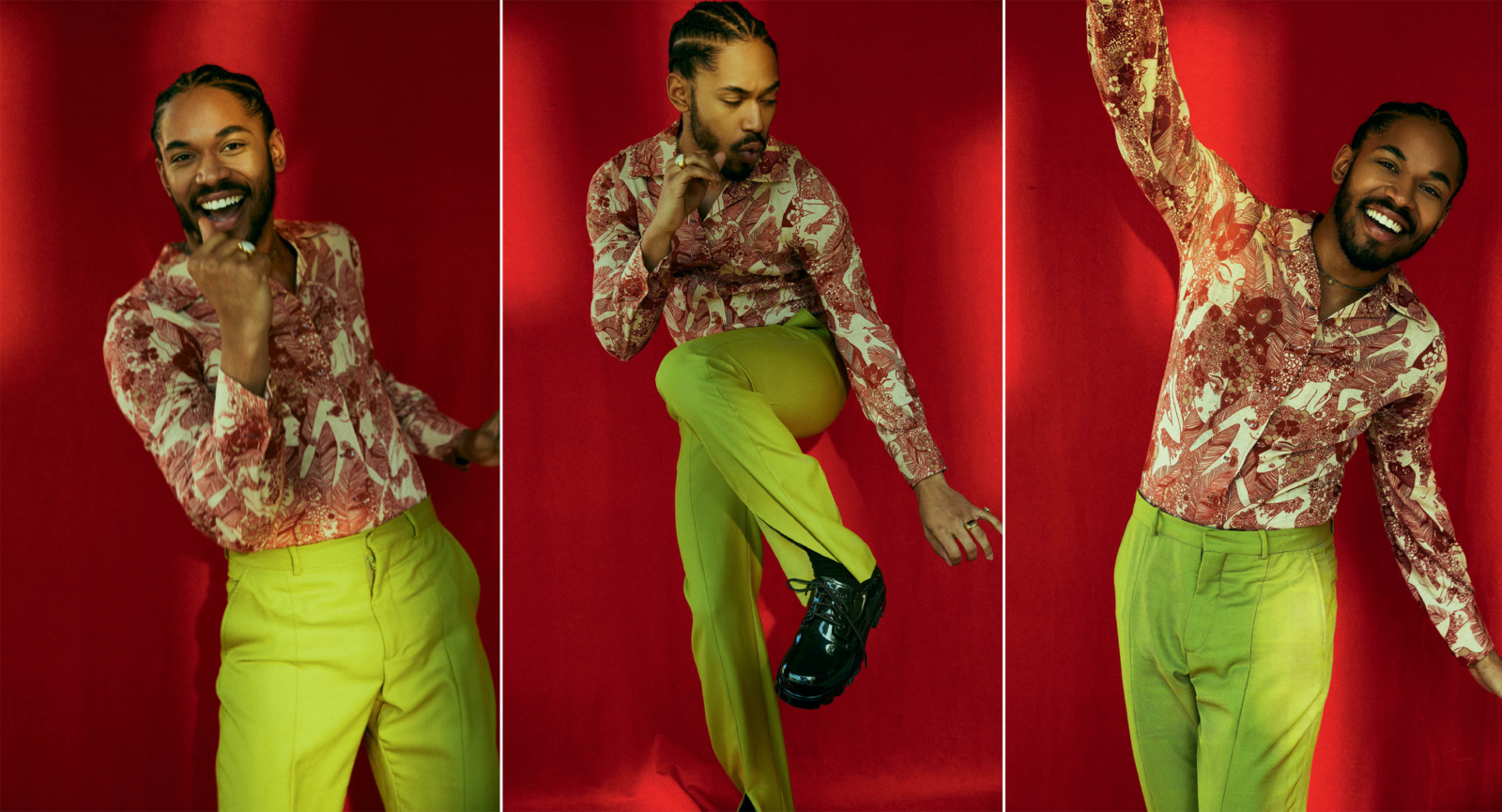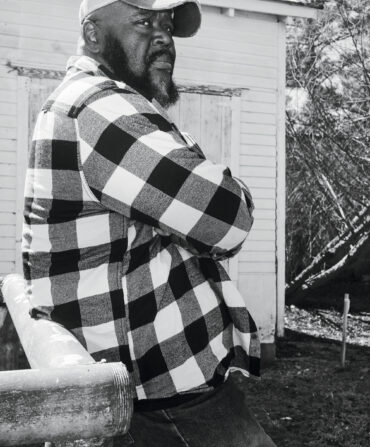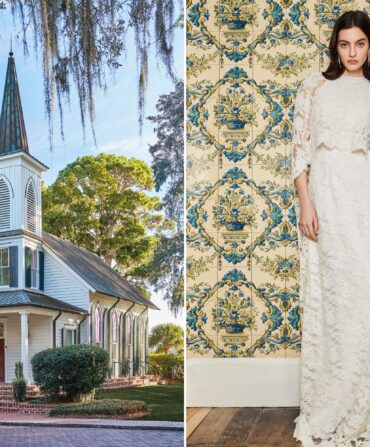Interview
Actor Kelvin Harrison Jr. Is on Key
The rising star can swing from New Orleans jazz to Hollywood’s latest hit without skipping a beat

Photo: Austin Hargrave
“Jazz is like putting on your favorite hat, a crop top, and a tie,” says the actor Kelvin Harrison Jr. of the art form that shaped much of his upbringing in the West Bank of New Orleans. The son of jazz musicians, he’s always improvising like that, striving to find the right rhythm in his music and, now, in Hollywood. And memories of life back then—visiting his grandmother, teasing his younger twin sisters, eating red beans and rice—form the liner notes of that nascent but thriving career. Harrison stumbled into acting, he says, while searching for a new way to express himself, and he’s moving closer to his perfect pitch with every role. His filmography includes such varied and lauded films as Cyrano, The Trial of the Chicago 7 (for which he won a Screen Actors Guild Award for outstanding cast), Monsters and Men, Mudbound, and 12 Years a Slave, as well as the forthcoming Elvis Presley and Jean-Michel Basquiat biopics. As Harrison prepared to present at the BAFTA Film Awards in London this past spring, he riffed on how he handles adlibbing, portraying legends, and keeping it simple.
So music came before acting?
My first instrument was the violin, then I played guitar, and I quit because I didn’t like the way it made my fingers feel. Then, after Hurricane Katrina, my dad taught band at McDonogh 15 [a little red schoolhouse in the middle of New Orleans], and I started playing trumpet. He started a jazz band, and I learned how to play keys. Those were my instruments right up until I started acting.
How does jazz inform your on-screen work?
Jazz is the thing I sometimes forget to do in my acting. It’s about playing, having a good time, and experimenting. My dad loves to play nursery rhymes or the theme song from The Flintstones when he’s improvising. It’s inside jokes and secrets. It’s stealing things from whatever you find interesting and seeing if it fits when you’re sitting in your pocket and present in that moment.
When did you get serious about acting?
After I booked The Birth of a Nation, I got a manager, and he told me to come to L.A. for a year and audition. I told him I had three months. I had some successes before that, but my initial plan was to act to make money to pay for college. I stayed with my aunt in Inglewood, and I would Uber to auditions. That’s where my money went. Then, I got It Comes at Night and Monster. The same casting director, Avy Kaufman, kept fighting for me to do all these projects. On those sets, I learned how to be an actor, and it built my confidence. I haven’t stopped since.
In Monster and Waves, you play young Black men who get tangled up in the penal system. With all the conversations around Black men and policing, when you play those types of roles, is it hard to separate yourself from the character?
I’m not choosing those movies because the part’s so good, I’m choosing them because they have questions I want answered. How do I find peace when everyone is trying to disrupt my experience? Some people think that acting is escaping from yourself and becoming the character, but I think we find truth when the person meets the character. It’s daunting on my spirit when I take on roles like the ones in Monster, Waves, and Luce. So, I walk away with more knowledge, and I grow as a person, but there’s also pain. They say ignorance is bliss for a reason.
What keeps you grounded?
My family, friends, therapist, agent, and managers.
Everyone is pretty real, especially my sisters. They bring back reality. None of this is real. Honestly, I don’t take it that seriously. I work hard because I want to do well and I respect this profession, but it’s not that deep.

Photo: Austin Hargrave
Joie de vivre, Kelvin Harrison Jr. style, in Los Angeles.
Speaking of working hard, you portray a young B. B. King in Baz Luhrmann’s Elvis biopic out in June. What did playing King teach you about the blues?
To keep it simple. A few notes go a long way if you do it with intention. That’s B. B. to me. He’ll play the same five notes, but you feel every note.
Now you’re preparing to star as one of the most influential artists of all time, Jean-Michel Basquiat. What drew you to the role?
When I finished Elvis, my Luce director [Julius Onah], who is directing the Basquiat film, asked me if I wanted to play Jean-Michel. I’ve been reading books, watching every interview, and watching every documentary. It’s fascinating because I think things come to you at the time they’re supposed to. I can mark my growth as a person and as an artist through my roles.
It’s a very Jean-Michel thing, to figure out: How do I work the system and maximize my opportunity as a person of color, as an artist, in this space if people are allowing me to be here, while also not taking it too seriously? The man is wearing Armani suits with paint on them, has cash jumping out of his pockets, and is throwing it all over the place and renting limousines. He loves irony. It’s a joke, but he wanted to be famous. What is fame and why do you want it? It’s a system, and you can get caught up in it if you’re not aware of it.
Do you have a dream role?
I feel like I’ve been doing it. I get to play real people and icons. I’m playing Scar [in the upcoming prequel to The Lion King]; I love that movie. I get to play interesting Black people thriving in spaces I didn’t think they could be in, and learn to understand why they moved the way they moved. I think acting chose me, and I feel like the roles find me as well. Things will come to me when I’m ready.







